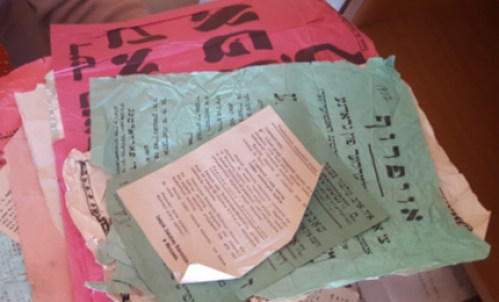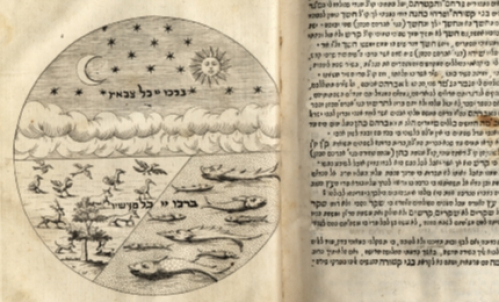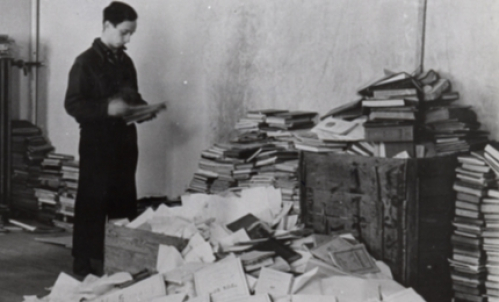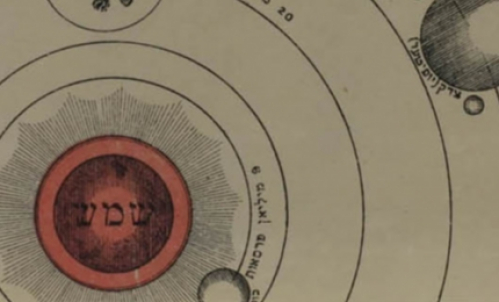Stubborn and Philosophical: Spotlight on Composer Alyssa Weinberg
by ALEX WEISER
“I think very much in terms of texture and color… I want to suspend the feeling of time and make you feel something different.”
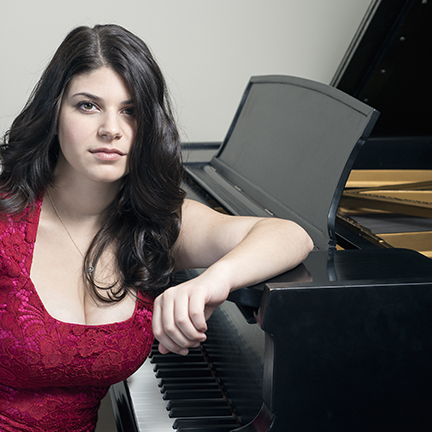
Alyssa Weinberg is a Jewish American composer who grew up in Long Island, New York. Weinberg recalls that growing up, it felt like “everyone was Jewish,” to the point that she described the few non-Jews in her town as being envious of Chanukah. Her childhood included Hebrew school three days a week where she sang in choir, learned prayers, language, and history. While her family attended synagogue mostly for high holidays or family functions, she had to go more often to meet a quota for passing Hebrew school.
While she was frustrated with having to attend Hebrew school and the religious components of it didn’t resonant with her, the musical component did. Weinberg recalls, “Music was always a part of my life as a child – everyone sang in a choir, and the first musical I was in was at the JCC” (Jewish Community Center). [Going to the JCC] “was the default afterschool activity… that’s where we would take ballet, cartoon class, I learned how to make matzo by hand, we had a gym, and they would do musicals.”
Weinberg also grew up with music in her family. “Both grandparents had pianos in their houses… I started messing around with it when I was very young, and I wanted to learn piano. So actually my father taught me with the books that I think his mother taught him. I think I had to learn with him for a year before they’d get me lessons – I had to earn it.” While she didn’t go on to be much of a pianist, this experience along with singing in choirs proved to be formative, and in the fourth grade she began playing the French Horn at school.
For a brief period when starting high school Weinberg tried to quit music, but after singing in the choir of The Sound of Music found herself pulled back to it. She reports, “From there it just sort of snowballed really, really quickly. Within about a year and a half’s time, all of the sudden, I was doing everything again, and I just sort of woke up one morning and said I’m going to be a music major, I’m going to be a musician.” She then took piano lessons, played horn in school band and orchestra, joined school choirs, and took music theory. “Maybe I had to leave it for a time to realize that that’s what I wanted to do,” she explains. “I have a problem with authority figures. So basically if my parents ever told me to do something it meant that I would very defiantly do the opposite.”
The summer after her junior year, Weinberg attended a music festival in upstate New York where she realized her experience in Long Island was that of “big fish, small pond.” At this music festival she didn’t place into the orchestra she wanted, and this left an extra free slot on her schedule. As if by a stroke of fate, the faculty member that advised her on how to fill this spot was David Ludwig (a Jewish composer from Pennsylvania who is also Composition Faculty and Dean of Artistic Programs and Performance at the Curtis Institute of Music). Ludwig recommended she take composition, which proved to be life changing. “I jokingly tell people I started composing by accident,” Weinberg says. “He’s really the reason I became a composer in the first place, and the reason I didn’t quit.”
Although she played a lot of different types of music at the time, Weinberg describes herself as essentially “a [Led] Zeppelin loving hippie,” who spent a lot of time playing guitar in friends’ basements. Ludwig’s composition seminar focused on listening to contemporary classical music like Schoenberg, Varese, Crumb, and Stravinsky. “It blew my mind,” Weinberg recalls, “when I heard Black Angels [a string quartet by George Crumb] for the first time… I was like, wow, I’ve never seen or heard anything like it. The score was so beautiful and the sounds were so new but in a way that kind of wasn’t that far of a stretch from the grungy sound of Led Zeppelin guitar playing, or something like that, and so my ears really quickly gravitated towards all of this really weird stuff, before I knew much about what had happened or why it happened.”
The new music concert at the festival was only for students enrolled as a composer, but Weinberg stubbornly started writing a piece anyway. When she showed what she came up with to Ludwig, he acquiesced and let her have a place in the upcoming concert. She returned to high school convinced she wanted to be a composer, but without a full composition portfolio. So she auditioned for college on horn and went to the Blair School of Music at Vanderbilt University. After a year taking composition courses as electives she was able to transfer to being a composition major – an unusual occurrence in a school where you audition specifically for your major. Weinberg reiterates, “I’m a composer because I’m stubborn.”
Weinberg described her college experience as “extremely formative in how I looked at art.” Philosophy, literature, and art history courses were very influential. “In a certain ways I feel that the classes that I took outside of the music school formed me as the artist today more so than anything else.”
After college Weinberg moved to New York City to pursue a Masters Degree studying with Richard Danielpour (a Jewish American composer of Persian descent) at the Manhattan School of Music. After MSM, Weinberg went to Philadelphia to attend the Curtis Institute of Music for three years. At Curtis, Weinberg she got to work again with her original composition mentor David Ludwig. Weinberg describes Curtis by commenting , “They make you write so much music…that was almost all that was expected of you, but damn, did they expect a lot of it.” (Curtis’s motto is “Learn by doing.”)
After finishing at Curtis, Weinberg went to Princeton University where she is currently pursuing a doctoral degree. She describes Princeton as a “choose your own adventure PhD”, noting that “there’s not much of a curriculum” aside from a few seminars and exams. “You’re there because there are things you want to work on.”
Discussing her musical style Weinberg explains:
“I think that all music is surrealist in its ability to transform. That manipulative power is something that I’ve always tried to be aware of. I think very much in terms of texture and color, and I think it’s because I want to suspend the feeling of time and make you feel something different. I think very visually and very abstractly… It takes quite a while before I actually make it to the keyboard to figure out what the ‘notes’ are of the piece – it starts in very abstract gestures and weird sound worlds I hear in my head first and I think a lot of it has to do with these other artistic influences.” [Regardless of the disparate musical influences in my pieces, this is] “the sort of philosophical undercurrent that is the thread between everything I write, it’s just a part of who I am.”
We will be featuring music by Alyssa Weinberg in our upcoming Young Jewish American Composers concert on November 2nd.
Based on an oral history interview with Alyssa Weinberg conducted by Alex Weiser on October 6th, 2016 in New York City. Quotes have been adapted from the conversation in consultation with Ms. Weinberg. The complete audio recording of the interview is now a part of the YIVO Institute for Jewish Research’s Sound Archive.
Alex Weiser is YIVO’s Programs Manager.
